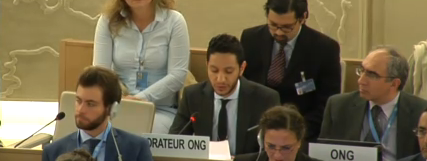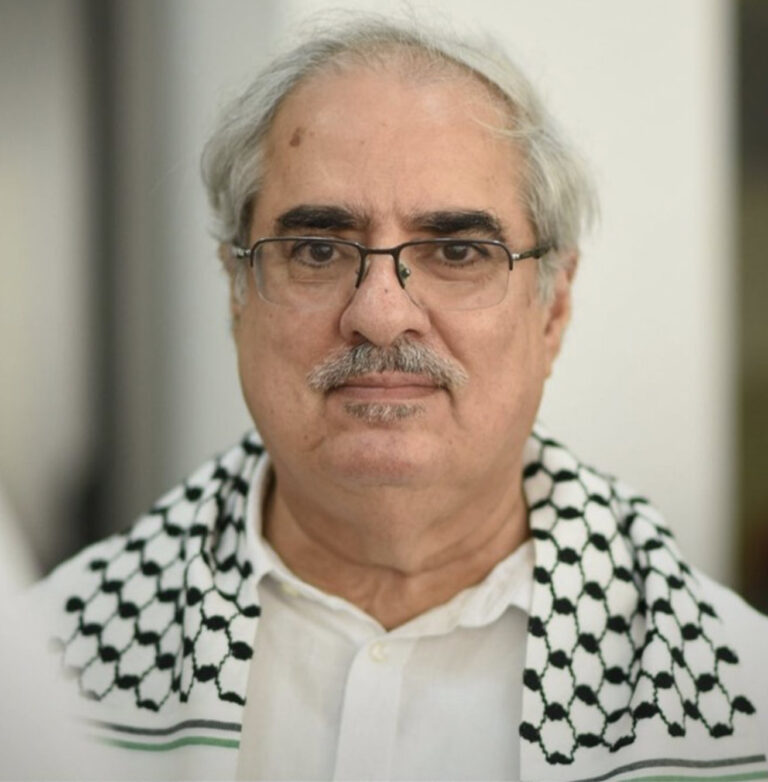26 October 2016 – Police arrested two activists protesting the meeting between Prime Minister Theresa May and King Hamad of Bahrain at 10 Downing Street today.
Sayed Ahmed Alwadaei, Director of Advocacy at the Bahrain Institute for Rights and Democracy (BIRD), was among the two detained. They were subsequently released.
Earlier today, BIRD wrote to Theresa May urging her to raise human rights in the meeting. The letter stated: “The only way to positively impact the human rights situation there is to make use of your leverage and to criticise these issues in public. To do any less will re-inforce the authoritarianism of the Bahraini king’s government.” (Read the full letter here.)
Margaret Ferrier MP also wrote to Mrs May, demanding that human rights tops the visit’s agenda. Anti-death penalty group Reprieve also called on the Prime Minister to raise the issue in the meeting. Multiple torture victims have been sentenced to death in Bahrain, with two having exhausted all appeals.
Sayed Ahmed Alwadaei is a survivor of torture. In 2011, during Arab Spring protests, he was beaten by police, arrested, tortured and sentenced by a martial court. He later claimed asylum in the United Kingdom. He was present at the Pearl Roundabout, the epicentre of protests, on 17 February 2011 – “Black Thursday” – when police cleared the roundabout, killing four protesters.
Ali Mushaima, the second activist detained today, is the son of Hassan Mushaima, one of the “Bahrain 13”, a group of political and human rights activists sentenced by military court in June 2011. Hassan Mushaima is serving a life sentence in Bahrain and Amnesty International Considers him a Prisoner of Conscience.
Sayed Ahmed Alwadaei: “It’s outrageous to see Bahrain’s dictator given a free pass when his security forces are responsible for murdering peaceful protesters. Nabeel Rajab is on trial for tweeting.
Nicholas McGeehan, Researcher at Human Rights Watch, said on twitter: “Instead of arresting Sayed Ahmed Alwadaei, maybe UK police should be taking a look at evidence of torture in Bahrain and the government’s sinister guest list.”
Intensified Crackdown in Bahrain
King Hamad’s first visit to the United Kingdom since Mrs May became prime minister, in recent months, a Bahraini government-led crackdown against civil society has intensified.
Rights defender Nabeel Rajab is facing up to 15 years in prison for tweets criticising the war in Yemen, which Bahrain is a participant in, and documenting torture in Bahrain. His next trial date is 31 October. Other human rights activists have been banned from travel, preventing them from advocating internationally. Meanwhile, political society has been restricted, with the largest political party in the country, Al Wefaq, dissolved over the summer.
Since June, when Bahrain stripped the citizenship of Sheikh Isa Qassem, the highest Shia religious authority in the country, over 60 religious clerics have been questioned, charged and imprisoned for their sermons and participation in protests. Five UN experts called on Bahrain to end its “persecution of Shias” in August.
In June, BIRD found the UK’s foreign policy to Bahrain to be “counter-productive” and “unsustainable“.
The royal relations remain strong, and Prince Charles is also due to visit Bahrain on 8-11 November.




